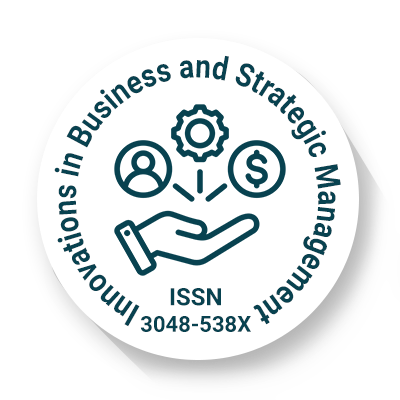
Innovations in Business and Strategic Management
OPEN ACCESS
ISSN: 3048-538X

OPEN ACCESS
ISSN: 3048-538X
In the modern business climate, with rapid development, the use of sustainability has progressed from a fad to a need. Modern businesses recognize the importance of implementing sustainable practices to maintain long-term profitability while minimizing environmental and social consequences. The sustainability business concept is all about responsible resource use, moral decision-making, and the adoption of new paradigms that promote economic progress while sustaining ecological sustainability.
One of the most basic elements of sustainable business practices is the efficient use of natural resources. Companies are rapidly turning to renewable energy sources, reducing waste creation, and implementing circular economy models to increase resource efficiency. Through the process, they not only reduce their environmental effect but also improve operational efficiency and save costs. Furthermore, the operation of sustainable supply chains is becoming increasingly important as businesses work with green suppliers to provide responsible raw material procurement.
Corporate social responsibility (CSR) is an important component of company sustainability. Ethical work practices, diversity and inclusion programs, and community initiatives improve a company's legitimacy and desirability to its stakeholders. Companies that prioritize CSR programs have a positive brand reputation and stronger customer, employee, and investor relations. Furthermore, sustainable firms tend to recruit top talent since professionals are more interested in working for a company that honors their beliefs.
Innovation has an important role in promoting corporate sustainability. The utilization of cutting-edge technologies such as artificial intelligence, blockchain, and the Internet of Things (IoT) allows enterprises to optimize operations and make data-driven, informed decisions that promote sustainability. Smart manufacturing, green building approaches, and environmentally friendly product designs are transforming industries and paving the way for a more sustainable future.
Sustainability and business are no longer incompatible. Investors are increasingly considering ESG concerns when making an investment decision. Sustainable firms are viewed as less hazardous because they are better positioned to deal with changing legislation, shifting consumer preferences, and volatile global economic conditions. Companies that prioritize sustainability benefit from increased investor trust and long-term financial success.
Today's shoppers are more thoughtful and reflective about their purchasing decisions. They tend to favor brands that demonstrate a real commitment to sustainability and transparency in business strategies. Organizations that integrate sustainable practices into their business models are more likely to gain consumer loyalty and a competitive advantage in the marketplace. Companies are responding to shifting consumer needs through initiatives such as sustainable packaging, ethical sourcing, and carbon footprint reduction.
Business sustainability is about economic and social prosperity, not only environmental responsibility. Businesses that embrace sustainability contribute to creating jobs, boost economic growth, and improve societal welfare in general. Firms that adopt a sustainability culture can make a long-term benefit to society while also supporting their sustainability in a globally competitive market.
As the business landscape evolves, sustainability is no longer optional but essential for long-term success. Companies that integrate sustainable practices into their core strategies can drive innovation, strengthen stakeholder trust, and create lasting value. By balancing profitability with responsibility, businesses contribute to a more sustainable and equitable world. Innovations in Business and Strategic Management supports this vision by publishing research on sustainable business strategies, helping organizations navigate the shift toward responsible and future-ready enterprises.